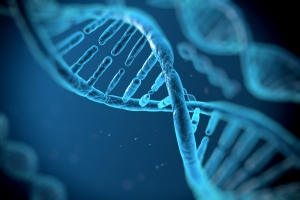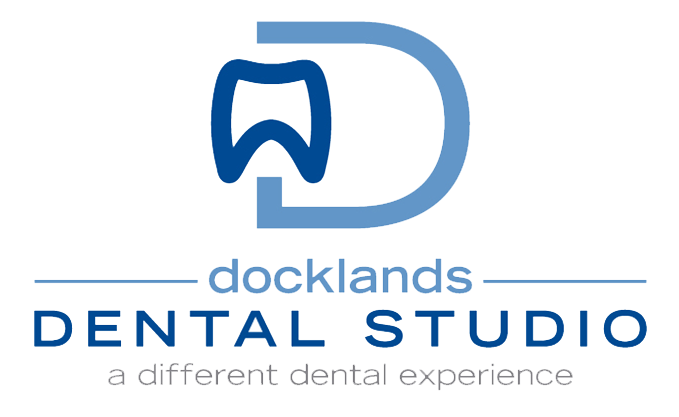How are your genes?
If you’re one of the lucky few who’ve never had a cavity, congratulations, because you’ve won the oral health edition of the genetic lottery. Most of us, however, are not so lucky, and our teeth and gums possess only average resistance to decay and infection.
If you’ve never given a thought to your parents’ oral health, now would be a good time to consider whether history might repeat itself! Luckily your genes don’t have to be your destiny. With good hygiene and proper care, you don’t need to wind up with your father’s teeth (or lack thereof, as the case may be).

Medical Conditions and Inherited Traits
There are only a small handful of specific oral health conditions that are inheritable, and they typically don’t affect very many families. Some of these include cleft lip, cleft palate, and amelogenesis imperfecta, which causes teeth to be small, pitted or discoloured.
However, most of the characteristics that define your teeth—size, color, shape, alignment—are the result of your genetic make-up. Whether your teeth are small or large, widely spaced or crowded, these qualities were passed down from your parents, and they may make you more susceptible to tooth and gum problems. Beyond genetics, nutrition in utero and in early childhood can also affect the composition of your adult teeth.
Luckily, knowledge is power; if you know you are susceptible to certain conditions there are steps you can take to mitigate undesirable outcomes.
Strong Teeth and Weak Teeth
There are several inheritable qualities that can make your teeth vulnerable to damage. Thinner enamel may make your teeth more prone to quickly developing serious cavities or cracking easily. Enamel that demineralizes faster may lead to developing multiple cavities between dental visits.
There is also a genetic link to your tolerance of pain. How can that affect your teeth, you ask? If you have a high pain threshold, especially in the dental nerves, you may develop more serious cavities (think root canals) without ever feeling a toothache.
Gum Disease and Oral Cancers
Like your teeth, your gums may be more susceptible to damage due to your genetic background. For most people, periodontitis (gum disease) can be prevented with good oral hygiene that controls the amount of bacteria that get under the gum line. This includes regular brushing, flossing, and dental cleanings. However, for those with a genetic predisposition, it may be exceedingly hard to stave off the condition, or keep symptoms under control. If one or both of your parents has gum disease, or has lost their teeth despite good long-term oral hygiene, you may be among the unlucky group who inherit this trait. Talk to your dentist if this is the case, as he or she may be able to help you identify early symptoms and aggressive measures that will help you avoid severe gum disease.
Oral cancers, likewise are mostly preventable if you avoid mouth irritants, such as tobacco products and excessive alcohol use. However, a genetic link has been discovered, so if anyone in your family has had oral or throat cancer, despite avoiding the vices mentioned, it would be a good idea to take extra precautions. Make sure your dentist knows to be especially thorough when conducting your regular oral cancer screenings in the future.
Malocclusion and Bite Alignment
If both parents needed braces, it’s highly likely that their children will also need braces. The alignment and positioning of your teeth is another factor that is determined by your DNA. This may include crooked, crowded, and overlapping teeth, as well as bite issues such as overbite, under bite, and cross bite. If you wore braces as a child, you may even find your teeth reverting to their genetically preferred placement, and may wish to undergo short-term treatments with braces or clear aligners to restore a more balanced and even looking smile.
Bruxism
Many sufferers of bruxism have family members who also grind their teeth. Though a genetic link is not definitive, this suggests that it may be an inherited condition. It’s already been proven that bruxism is not caused by stress, so a genetic connection to central nervous system function may indeed be a possibility.
Conquer Your Genes!
The good news, of course, is that oral hygiene and preventive care can trump genetics, for most inherited susceptibilities.
If your parents have had dental problems throughout their lives, consider whether hygiene and lifestyle also played a role. If you parents did not get regular dental care, drank heavily, or used tobacco products, this could have contributed to damage more so than genetics. If one of your parents has had endless problems despite good habits and professional care, you should discuss this with your dentist and find out what you can do beyond routine oral hygiene to make sure you have a brighter future in store.
Visit one of our friendly dentists at Docklands Dental Studio to learn more about the health of your teeth and gums. Call our dental practice today at (03)9021-9487 to make an appointment.
Our dental practice is within a 30 minute commute from North Melbourne or West Melbourne by taking bus or tram into the city. Hop on Tram Number 11 or 48 from Collins Street towards Docklands, and get off at Collins Landing (Stop D17).
